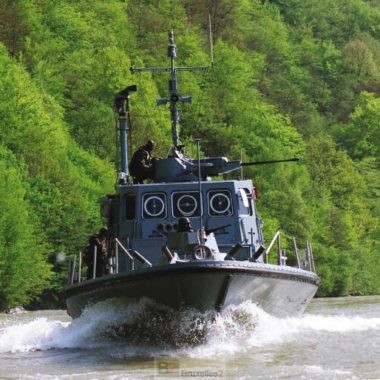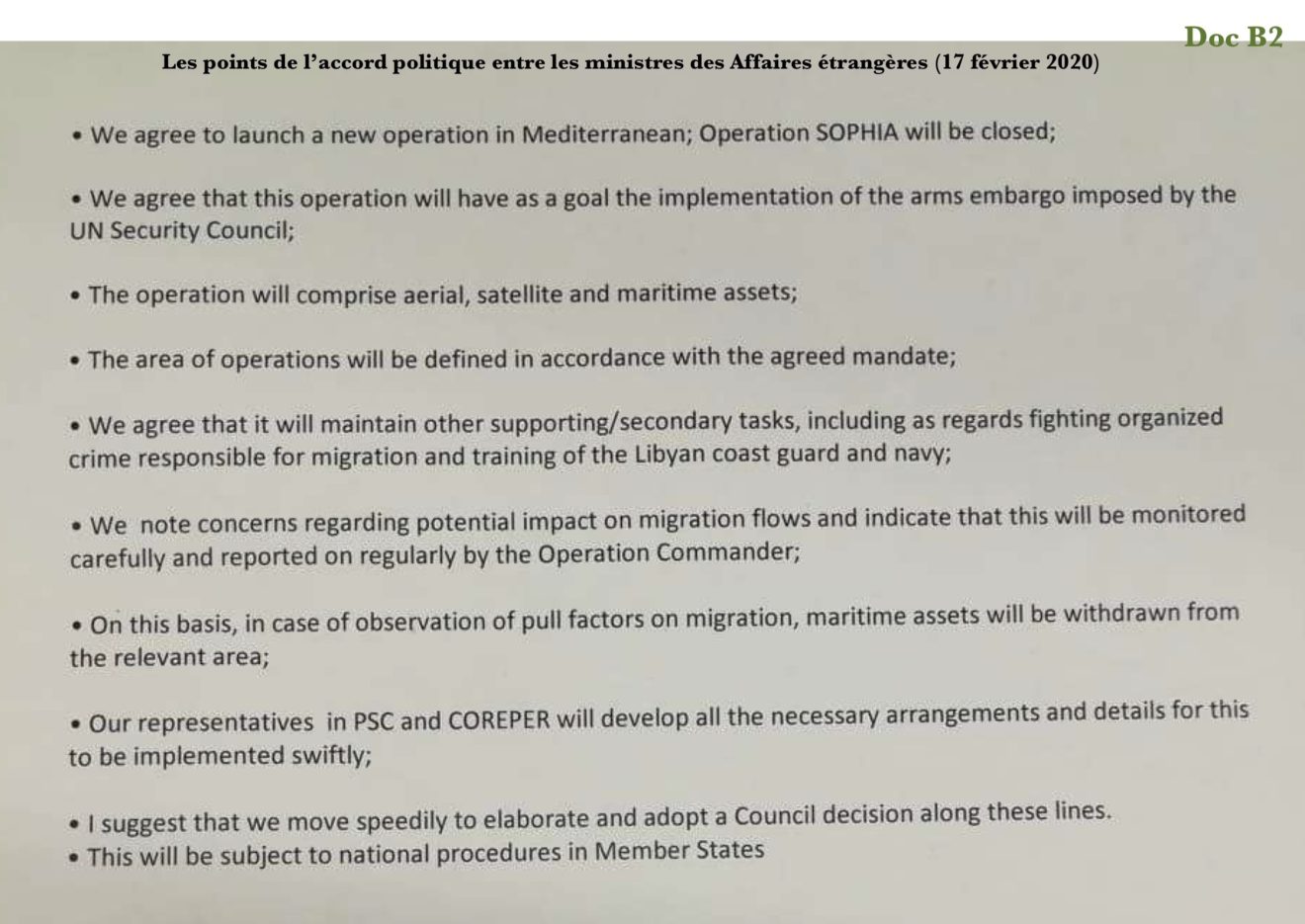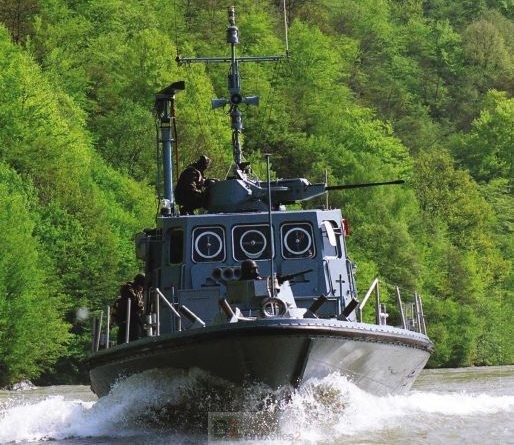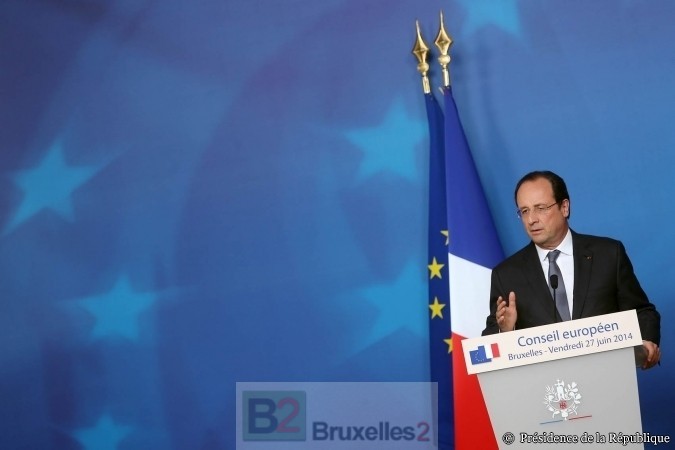Don't call me Sophia anymore! The key points of the new EU operation in the Mediterranean
(B2) EU foreign ministers finally agreed* on Monday (17 February) on the relaunch of the European maritime operation in the central Mediterranean

The return of ships to sea
The Austro-Hungarian obstruction was eventually defeated at the cost of a series of changes made, including to the area of operation and rules of engagement (read: Piave's revenge. Austria-Hungary blocks. Operation Sophia at an impasse). This return of the ships to the sea comes after a year of interruption of naval activity, and after a number of discussions and negotiations between ambassadors, even between ministers by telephone, in recent days, including at the highest level during the Munich Security Conference (article to follow).
The arms embargo in focus
The objective of the operation is redefined. Or rather its objectives are re-hierarchized. It will focus above all on monitoring the arms embargo. The objectives of combating human trafficking and the training of the coast guard and the Libyan navy becoming secondary.
The revised operation area
European ships will be deployed more on the east coast of Libya, not far from Egypt. To control the arms embargo, it is more justified. On the one hand, this makes it possible to control ships coming from the eastern Mediterranean: the Suez Canal for Emirati or Jordanian ships which supply the Haftar clan or Turkey which supports Tripoli. Moreover, having a presence not far from Benghazi (controlled, precisely, by General Haftar) is not useless either.
All means mobilized
The operation will be carried out with all possible means: naval, aerial, satellite, even submarine, all other information and intelligence tools. States have all pledged to contribute in one way or another.
The 'pull factor', key to the agreement
A recall clause was added, allowing the Austrians to be convinced. The process of migrant smuggling will be closely observed. If an additional increase in traffic is detected in an area – what specialists call the 'pull factor' (attraction effect) – then the naval assets will be withdrawn from the area concerned. They will be able to operate in another area if necessary, or return to port. It will be up to the operation commander to decide — or to the political authorities (the Union's ambassadors) — as the case may be.
The name of the operation changed
« Sophia is now part of ancient history “, proudly announced Alexander Schallenberg, the Austrian Minister of Foreign Affairs at the end of the meeting. The operation is no longer called Sophia. A name given in honor of a baby born on board one of the ships of the operation and too connoted 'refugee reception' for several countries. On the other hand, it will continue to be named EUNAVFOR Med attached to the name of a Greek god of the sea who had numerous offspring. It remains to finalize all the details.
A new decision to be written by March 23
Military specialists and EU ambassadors are called to the floor tomorrow to clarify everything. Deadline given: the next meeting of Foreign Ministers, 23 March. Just in time before the deadline written in Sophia's current mandate: March 31st.
(Nicolas Gros-Verheyde)
*Foreign Ministers agreed on 9 points, which are as follows:



